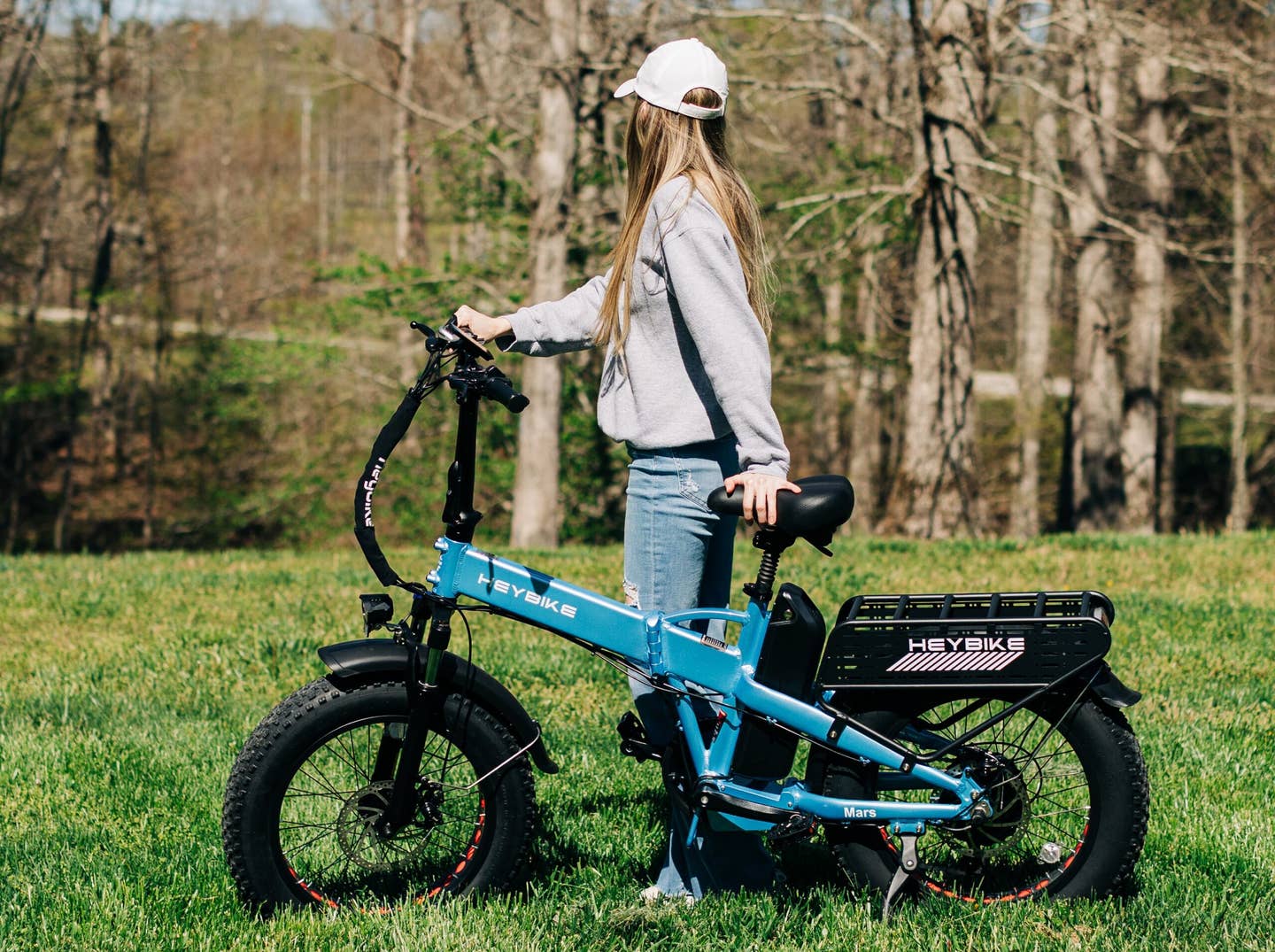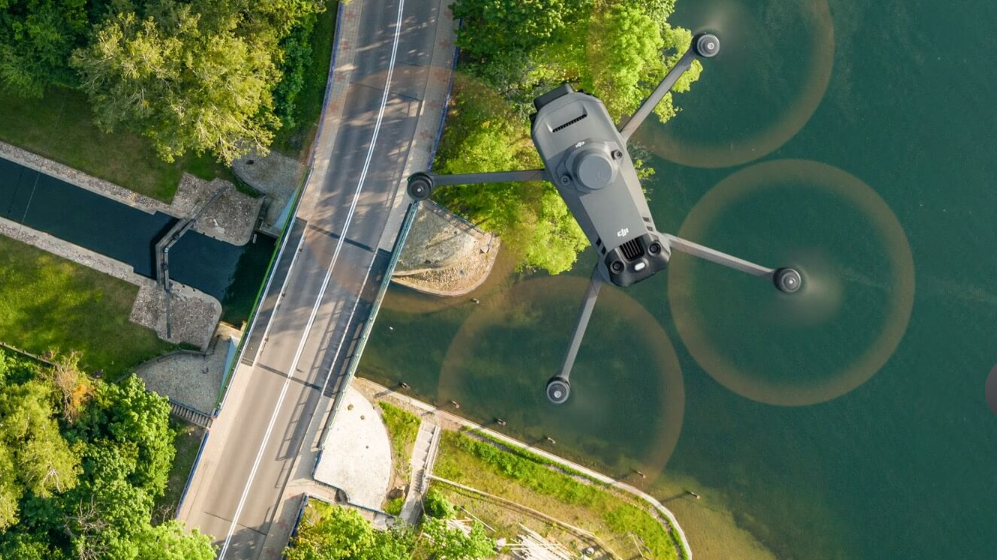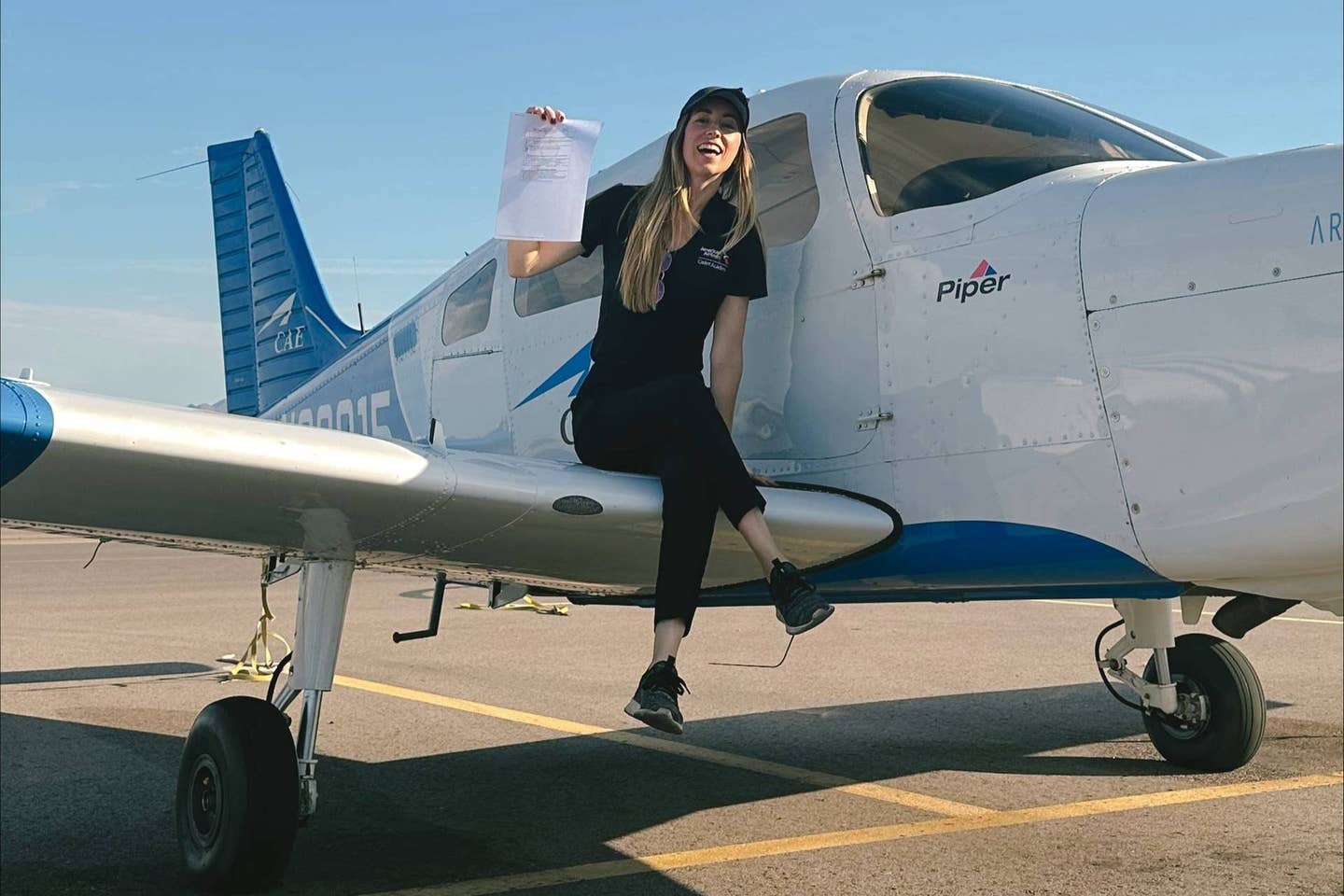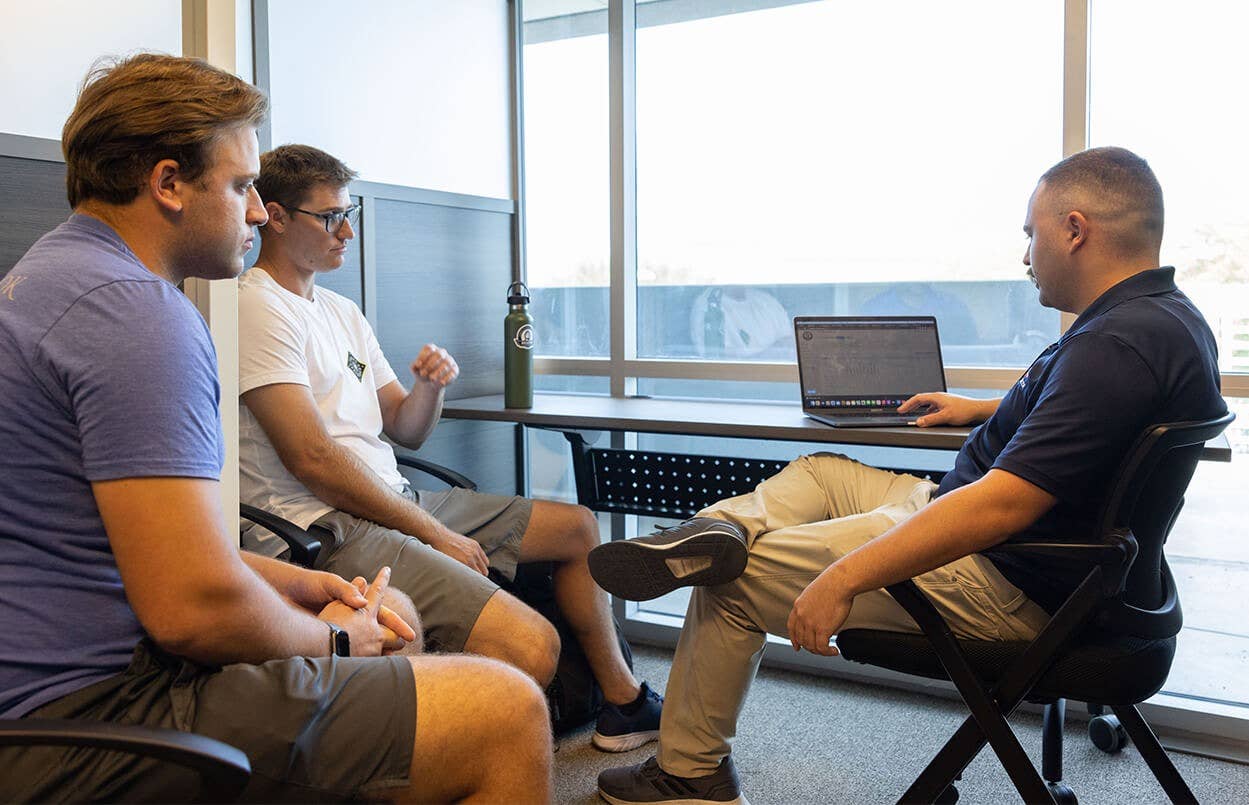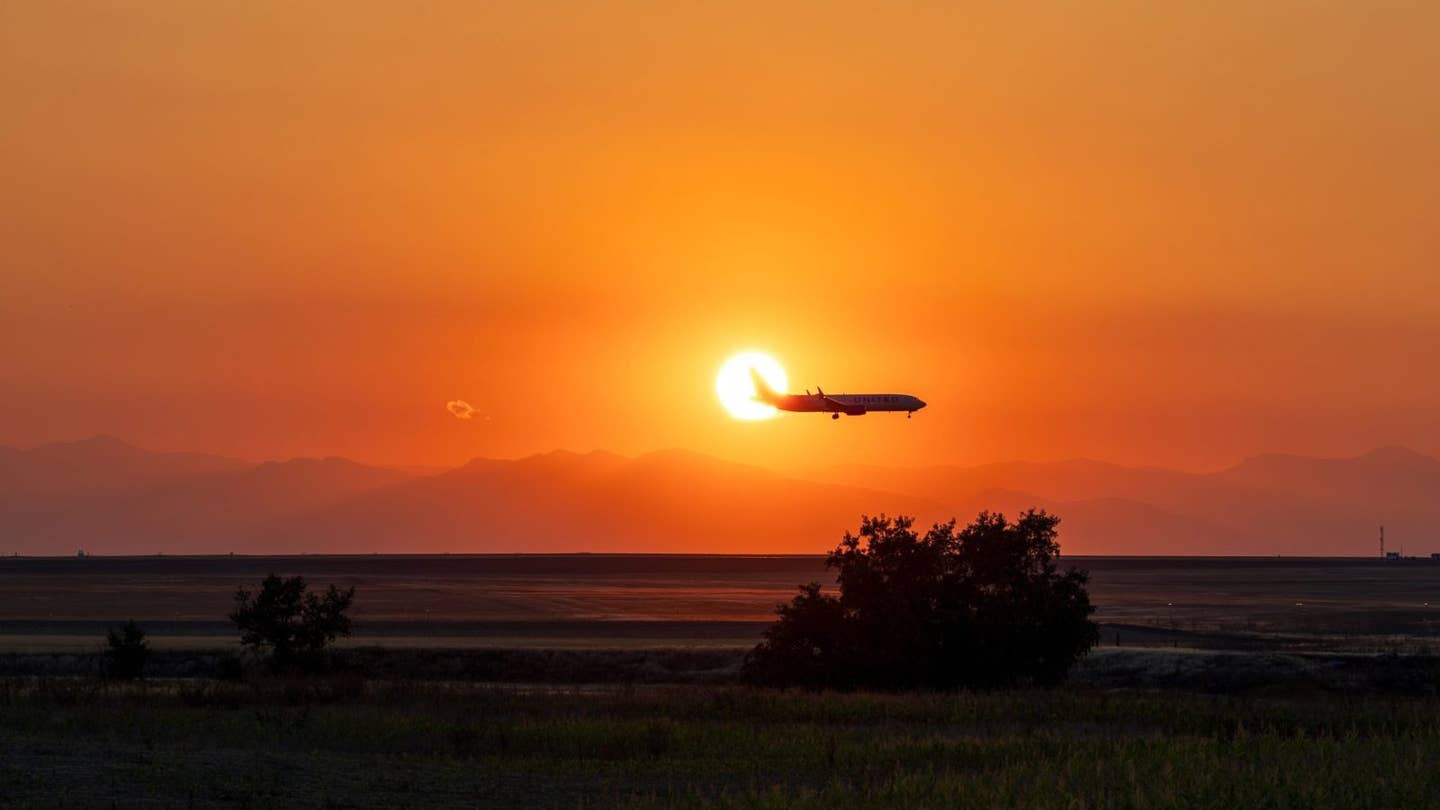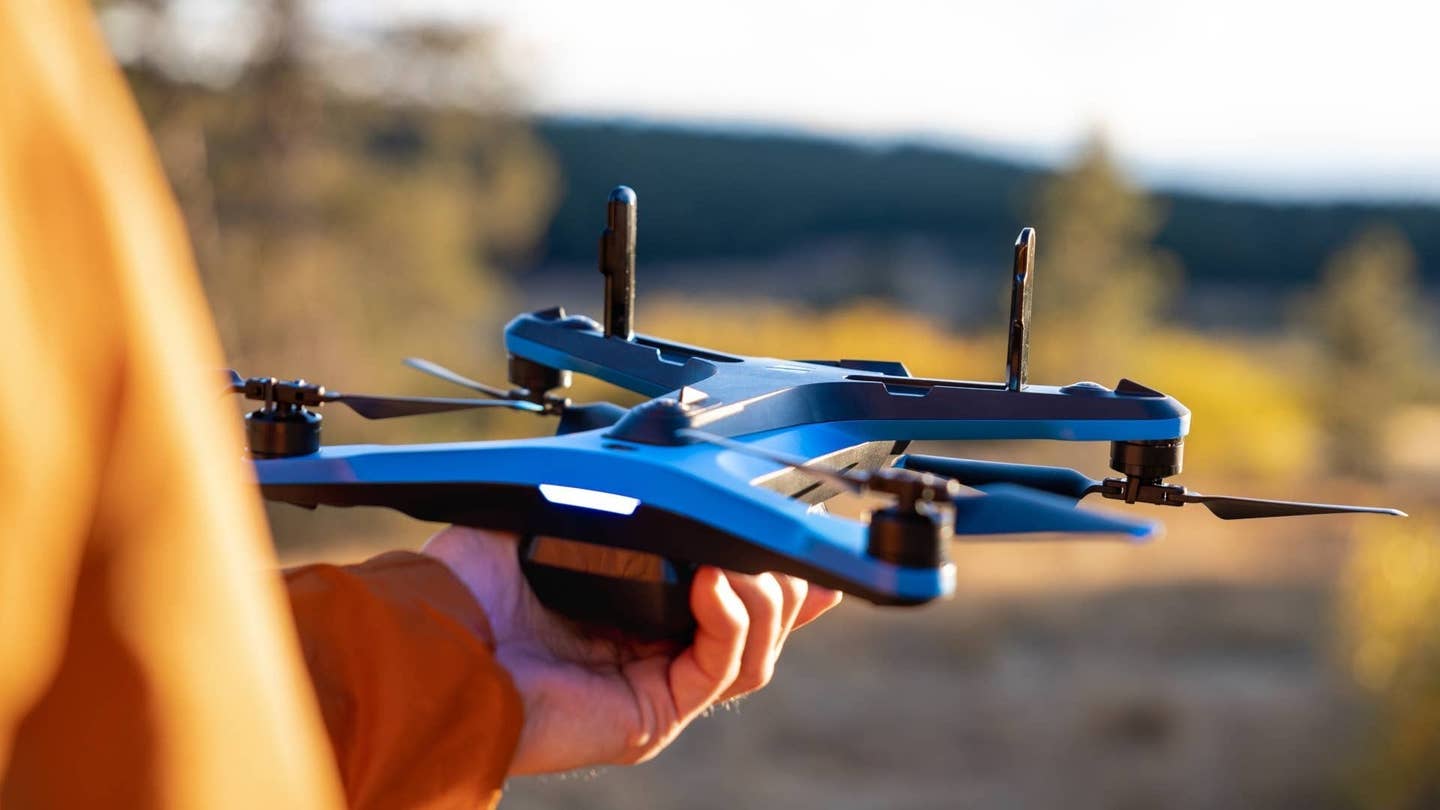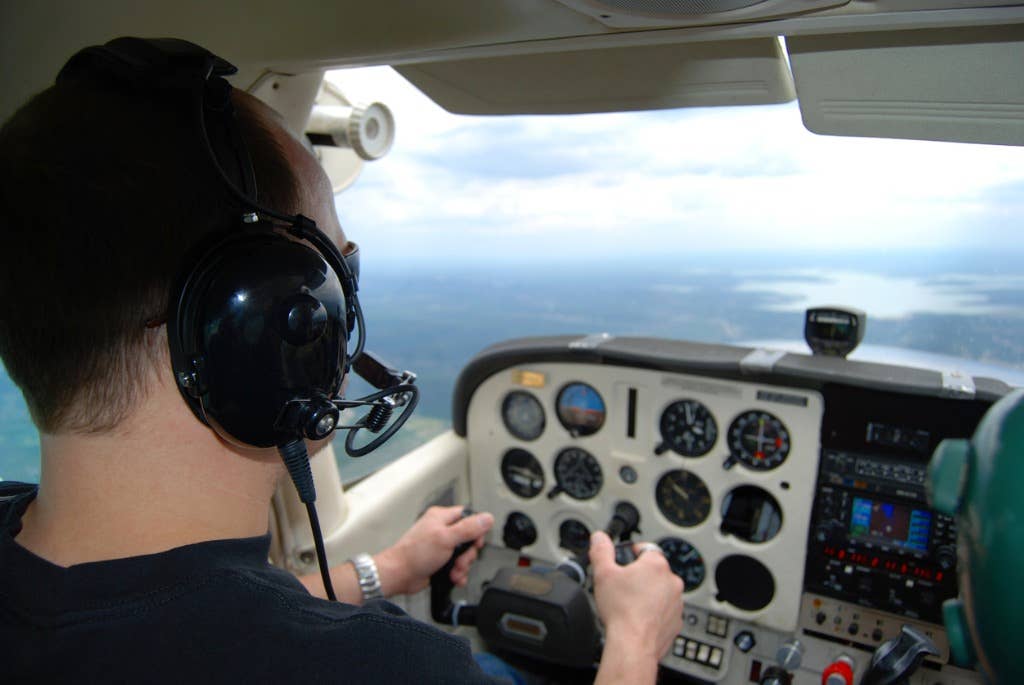
A male student pilot in flight training. [Credit: Strider]
You are not required by law to have student pilot insurance, also known as renter’s insurance, but you definitely should. Some aviation schools or flight training organizations will not enroll you, or lease or rent an aircraft to you as a student, if you do not have a renter’s insurance policy.
Even if the aircraft owner is insured, the insurance company can still try to collect damages from the student. This is referred to as subrogation. Having renter’s insurance helps to ensure that you’re covered for certain damages not covered by the aircraft owner’s insurance policy.
LEARN TO FLY with us and get in the air quickly!
What Is Pilot Insurance for Students?
Pilot insurance for student pilots is called renter’s insurance or non-owned aircraft insurance. This insurance protects you from damages or medical expenses while flying an aircraft that you do not legally own. You can also use it to supplement the coverage of your flight school’s policy.
Renter’s insurance can even cover expenses as a result of loss of use. Renter’s insurance is offered in several different packages consisting of a combination of three policies:
- Bodily injury liability: This is the policy that offers coverage for medical expenses for you, your passengers, and people not in the aircraft.
- Property damage liability: Property damage liability can cover you for any damages to third-party property, except for the rented aircraft you are piloting.
- Hull coverage: This is the policy that covers damage done to the rented aircraft. The amount of coverage is dependent on your insurance policy and should be aligned with the value of the aircraft you rent. Hull coverage can also cover the owner’s insurance deductible and potential loss-of-use expenses.
How Do I Get Student Pilot Insurance?
Obtaining student pilot insurance is similar to applying for other types of vehicle insurance. There are plenty of companies offering renters insurance, which is why we advise you to do some research on the policies offered by different insurance providers.
The amount of coverage can vary per company and policy. This is usually reflected in the rates you pay.
You can always ask other pilots or a flight instructor for advice. They may be able to refer you to a provider. It’s a good idea to look for reviews. After you’ve found your top picks for a personalized quote before finalizing your decision.
What Questions to Ask When Shopping for Student Pilot Insurance?
Once you start looking for student pilot insurance, you might wonder what you should look for. There are some important questions to ask when you’re on the hunt for student pilot insurance policies.
- Does this policy cover costs or salary loss as a result of loss of use of the aircraft?
- Does this policy cover me on the ground as well as in the air?
- Who exactly is covered by the bodily injury policy? Is it just me, my passengers, or also people outside of the aircraft?
- Does this policy cover legal fees in case of a lawsuit or damage claim?
- Am I covered for the aircraft owner's deductible?
Reasons You Need Pilot Insurance
The main reason you need pilot insurance as a student is that it comes at a small price, whereas an uninsured accident can easily cost a small fortune and cause financial ruin.
Your Flight School or FBO’s Insurance May Not Protect You Fully
Your flight school, aviation training organization, or FBO is insured to protect them, not you. There are clauses in many ATO or FBO policies that allow them to charge the deductible and expenses to the student if they cause significant damage to an aircraft.
In some cases, you may even be liable for loss of revenue from an aircraft you damaged. Student renter’s insurance can cover these gaps where your flight school or FBO’s insurance doesn’t.
Student Pilots May Be Held Responsible for Aircraft Damage
Your renter’s insurance package should include hull coverage. Hull coverage can cover you for damages to the owner’s aircraft, owner’s deductible, and even loss of use. Did you know you can be held responsible for damages that happen while the instructor is in the aircraft with you while you’re flying? Renter’s insurance ensures you’re always covered.
Could Be Liable for Bodily Injury / Property Damage
If you cause damage to anyone or their property while operating the aircraft, you are liable for these damages. Having the right insurance policy can cover you for these damages and even medical expenses. Always be sure to inquire about policy sub-limits to see what amount is covered per incident.
Insurance rates for both liability policies at the time this story was written range from $90 to $220 per year. Hull coverage may range from $99 to approximately $2,000 per year. This might seem like a lot, but a single accident resulting in damage to the propeller or landing gear can easily cost at least $5,000, and possibly far more.
Being on Someone Else’s Policy Doesn’t Cover You
Being listed on someone else’s policy only covers the policyholder and not you as a student. You need your own renter’s insurance to cover you for potential damages and expenses.
As an approved pilot on someone else’s insurance, you can still be held responsible for any deductible. However, having your own insurance can fill this gap in coverage and protect you from paying that deductible out of pocket.
However, it’s still important to be on the aircraft owner’s policy as an approved pilot. Adding you as an approved pilot means the owner will still be covered under their own insurance policy and be protected if you cause damages.
Carriers May Reserve the Right to Subrogate
Subrogation means that the insurance company has the right to attempt to have the student pay for damage costs and loss-of-use expenses. Renter’s insurance can cover you for the owner’s deductibles and protect you if a carrier has a subrogation clause in their insurance policy. As deductibles are based on premiums, always ask your flight school about their policy so you can make sure you’re sufficiently covered.
How Much Does Pilot Insurance Cost?
Your student pilot insurance costs will depend on your required coverage and the assembly of your insurance package. Having additional policies and higher coverage will increase the rates but save you a lot of money and hassle in case of an incident.
Protect Yourself with Student Pilot’s Insurance
Though the owner of the aircraft might be appropriately insured, this primarily protects them and not you. Having student pilot insurance will make it so that you can go about your training without having to worry about a single accident potentially breaking the bank.
With student pilot’s insurance, you can rest assured knowing that you are covered for any potential expenses caused by you piloting the aircraft. We understand student pilot insurance might look expensive. However, repairing an aircraft or expenses resulting from loss of use are much more costly.
For the latest information about becoming a student pilot and getting into the air, head over to learn to fly!

Sign-up for newsletters & special offers!
Get the latest FLYING stories & special offers delivered directly to your inbox

